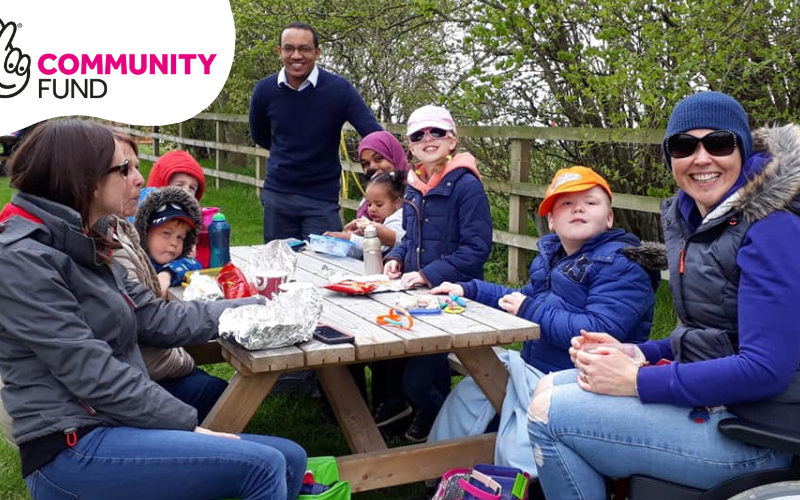Mobile Karten Centre in Leeds
As part of our work to remove barriers and empower those who are D/deaf, hard of hearing, sight impaired, deafblind or have other disabilities to live full lives, our team in Leeds has setup a mobile Karten Centre. This offers access to technology and support at our city centre office in Leeds, but is mobile so can also be taken to various locations across Leeds, allowing us to deliver services closer to our clients. Karten Centres, funded by The Ian Karten Charitable Trust, are a network of centres which provide access to adaptive technology for those with disabilities. We already have a Karten Centre in Birmingham and our new mobile Karten Centre in Leeds is already helping us support people to overcome the digital divide on both mainstream technology and personalised solutions for our clients.
As an organisation, we spend a lot of time introducing people to a variety technologies which can help our service users to be more independent, but there is the constant threat of a small change breaking the solution that has been relied on for years.
A Screenreader is a very powerful tool, it can be the difference between someone accessing the digital world or being isolated as it becomes a bigger part of our lives. Systems such as Apple’s VoiceOver or Microsoft’s Narrator, or other software like Freedom Scientific’s JAWS are constantly updated. Crucial changes can happen to the software we all use and it can be irritating for non-disabled people but can have a much bigger negative impact on disabled users.
Google Mail recently withdrew their basic HTML view from their Gmail website and this has caused a lot of problems for some Screenreader users. Google insisted that the standard webpage was still accessible but as a result of these changes, it required at least one Screenreader to be used very differently than most users would be used to.
If you have never come across a Screenreader before, it reads out content from a page using synthesised speech. It can be used by people who have no useful sight and can be controlled through the keyboard when using a laptop (there are lots of keyboard shortcuts so that users can navigate through different elements on a page), or using different gestures when using a mobile device. Its effectiveness heavily depends on how well they have considered accessibility in the design process and by the amount of content on the page. It’s such a powerful tool that people can learn how to use it fairly quickly and eventually use it to complete every day tasks.
When the change was made to Gmail, one of our clients who uses JAWS suddenly found themselves outside their comfort zone and unable to deal with their email when accessing the webpage. They found themselves lost on the page as previous shortcuts took their focus to strange new places. In the past they had relied on a muscle memory that involved pressing keys in a specific order to get to the email list or the reply button and even though the elements were still available they were lost to the mental picture that had previously provided a framework to the page. Our client grew more frustrated with the inability to progress and was unable to let go of the previous way of working to clear the way to engage with the new.
After many weekly support sessions with no success, it was time to start looking at alternatives. Many people think that JAWS is the most well-developed Screenreader for the Windows platform and it supports access to the applications and webpages in the most comprehensive way. However the Gmail page example shows that sometimes comprehensive access can come with an overwhelming amount of information. Within the Visually Impaired technology world applications on mobile devices tend to be optimised by design, more suited to smaller screens and this can simplify the user experience.
After looking at lots of different mobile solutions, the client tried out a Synapptic device which is a bespoke mobile phone hosted by the Android platform but using a simplified software to give the user a straightforward experience. Even though the client was learning an entire new system, it was easier than trying to adapt to the changes from their previous system. Very quickly they were able to manage their email independently.
Technology is everchanging and the Karten Centre allows us to support clients through those inevitable changes rather than sending people away with solutions that cannot grow alongside our client’s needs.
We would like to say a huge thank you to The Ian Karten Charitable Trust for your ongoing support and helping us develop our mobile Karten Centre in Leeds so that we can provide the best possible support to our clients.
To find out more about our services in Leeds and our Karten Centre, please visit out Leeds service page:
Keep updated on this project by following us on social media.
Facebook: @BIDLeeds
Instagram: @BIDLeeds
X: @BIDLeeds








